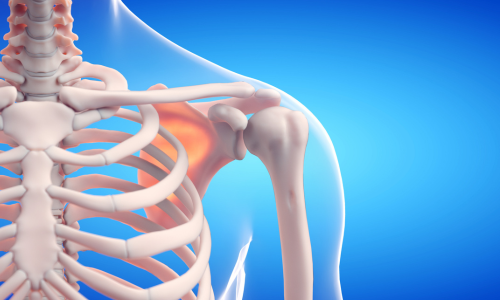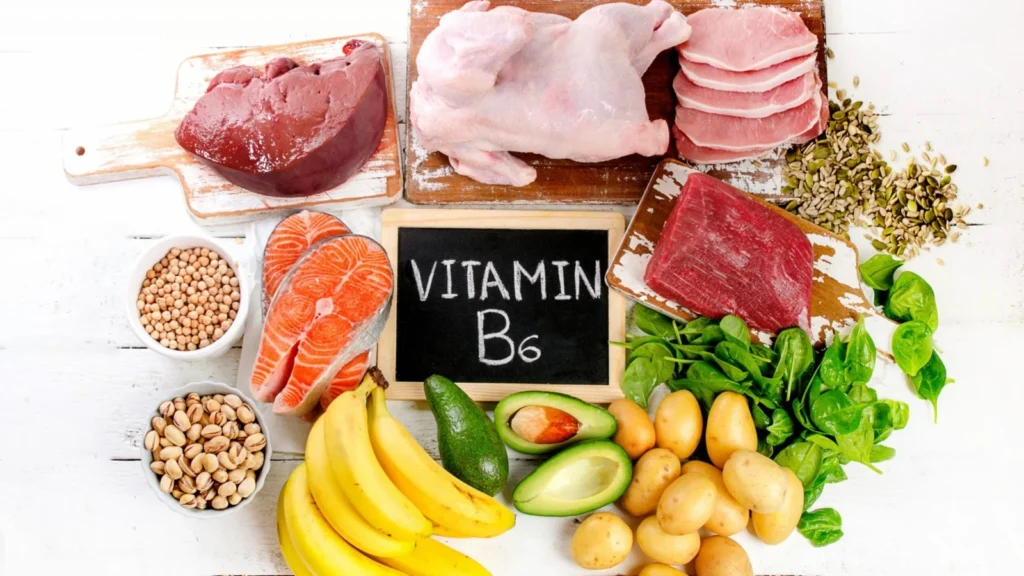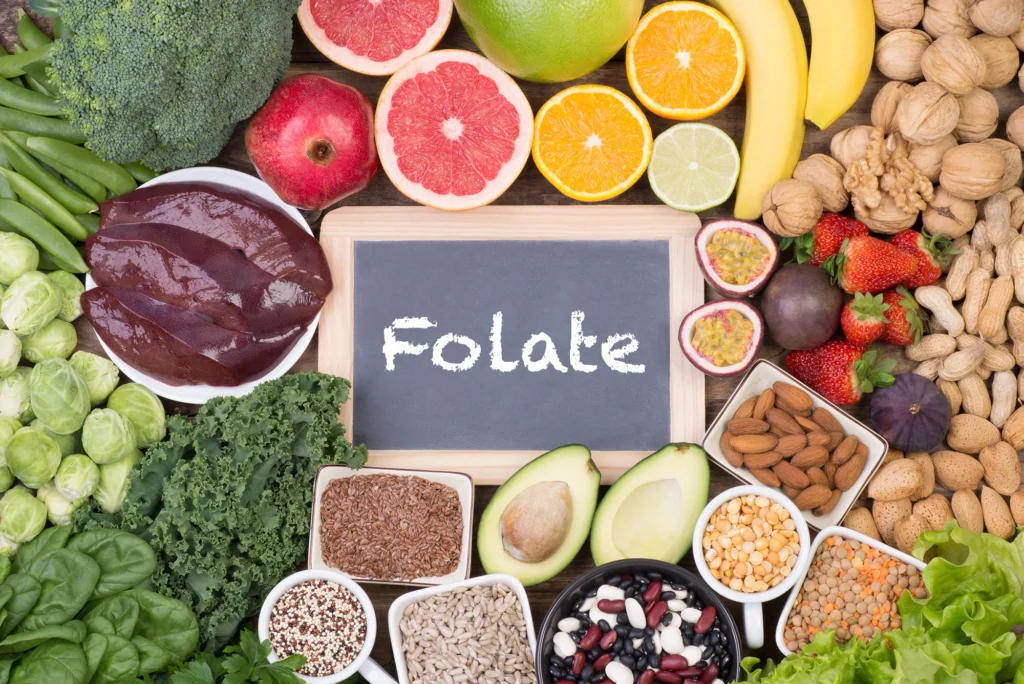Bone health is essential for an active, healthy lifestyle. Strong bones not only support movement but also help prevent fractures and contribute to overall well-being. Regular physical activity, especially weight-bearing exercises, is important, but proper nutrition plays an equally crucial role in maintaining strong bones.
To keep bones healthy, it’s essential to include vitamins and minerals that support bone strength and resilience. Key nutrients like calcium, vitamin D, magnesium, and vitamin K are vital for maintaining bone density and preventing bone loss. These nutrients help the body absorb calcium, promote bone formation, and improve bone structure.
Incorporating these nutrients into your diet is simple. You can find calcium in dairy products, leafy greens, and fortified foods. Vitamin D is found in fatty fish and sunlight exposure, while magnesium is present in nuts, seeds, and whole grains. Vitamin K is abundant in green vegetables. By ensuring you get a balance of these nutrients, you can support strong, healthy bones throughout life.

The Role of Vitamins in Bone Health
Bones are living tissues that require proper nutrition to stay strong and functional. Vitamins, along with essential minerals like calcium and magnesium, play a vital role in maintaining bone health. These nutrients support bone density, strength, and the healing process, helping to keep bones resilient and healthy over time.
A balanced intake of vitamins ensures bones remain dense and strong, reducing the risk of fractures, osteoporosis, and other bone-related conditions. Proper nutrition helps maintain bone structure and function, allowing for better mobility and fewer complications. By incorporating the right vitamins and minerals into your diet, you can support overall bone health and promote stronger, more resilient bones throughout life.
Vitamin D: The Bone-Strengthening Vitamin
How Vitamin D Works in the Body
Vitamin D is essential for bone health because it helps the body absorb calcium, a key mineral for building and maintaining strong bones. Without enough vitamin D, bones can become weak and brittle, increasing the risk of fractures and bone-related conditions like osteoporosis. Adequate vitamin D levels are crucial for maintaining bone strength and overall skeletal health. Ensuring you get enough vitamin D through sunlight, food, or supplements is important for preventing bone weakness and promoting long-term bone health.
Sources of Vitamin D:
Sunlight: The body naturally produces vitamin D when exposed to sunlight, so spending some time outdoors each day is important to maintain healthy levels.
Foods: Vitamin D can be found in fatty fish like salmon and mackerel, fortified dairy products, eggs, and certain mushrooms. These foods are great sources to help boost vitamin D intake.
Supplements: If you’re not getting enough vitamin D through sunlight or food, supplements are a convenient option to fill the gap.
Benefits:
Enhances calcium absorption, which helps improve bone density and strength.
Prevents conditions such as rickets in children and osteomalacia (softening of bones) in adults.
Reduces the risk of developing osteoporosis, a condition that weakens bones and makes them more prone to fractures.
Vitamin K: The Bone Builder
Vitamin K’s Role in Bone Mineralization
Vitamin K is essential for bone health as it supports the mineralization of bones. It activates osteocalcin, a protein that binds calcium to the bone matrix, improving bone density and strength. Additionally, vitamin K helps regulate calcium levels in the body, ensuring that calcium is deposited in bones rather than in areas like the arteries. This contributes to healthier bones and better overall calcium balance, preventing issues such as arterial calcification.
Sources of Vitamin K:
Leafy Greens: Kale, spinach, and Swiss chard are rich in vitamin K, making them excellent choices to boost your intake.
Fermented Foods: Natto, sauerkraut, and kimchi are good sources of vitamin K, especially natto, which is particularly high in this vitamin.
Other Sources: Broccoli, Brussels sprouts, and dairy products also provide vitamin K, supporting overall bone health.
Benefits:
Supports Bone Mineralization and Strength: Vitamin K helps activate osteocalcin, a protein that binds calcium to bones, improving bone density and strength.
Reduces the Risk of Fractures: By enhancing bone mineralization, vitamin K helps make bones stronger and less prone to fractures.
Helps Regulate Calcium Balance: Vitamin K ensures calcium is properly utilized, preventing it from being deposited in areas like the arteries, which could lead to health issues.
Vitamin C: The Collagen Booster

Vitamin C’s Role in Bone Structure
Vitamin C is crucial for collagen production, a protein that forms part of the bone matrix. Collagen provides structural support, keeping bones strong and flexible. Without sufficient vitamin C, bones can become brittle and weak, increasing the risk of fractures. Additionally, vitamin C aids in the healing of bone fractures, promoting recovery and strengthening the bones over time. Ensuring adequate vitamin C intake is essential for maintaining bone health and supporting the body’s natural repair processes.
Sources of Vitamin C:
Citrus Fruits: Oranges, grapefruits, and lemons are rich in vitamin C, making them great options for boosting your intake.
Berries: Strawberries, blueberries, and raspberries are packed with vitamin C and also provide antioxidants that benefit overall health.
Vegetables: Bell peppers, broccoli, and tomatoes are excellent vegetable sources of vitamin C, supporting bone health and immune function.
Benefits:
Promotes Collagen Formation for Strong, Flexible Bones: Vitamin C plays a key role in producing collagen, which forms part of the bone matrix, ensuring bones stay strong and flexible.
Aids in the Healing of Bone Fractures: Vitamin C helps accelerate the healing process of fractures by supporting collagen synthesis and bone repair.
Acts as an Antioxidant: Vitamin C protects bone cells from oxidative stress and damage, contributing to better overall bone health and longevity.
Vitamin A: The Bone Growth Vitamin
The Role of Vitamin A in Bone Growth
Vitamin A is essential for regulating bone growth and remodeling. It supports the activity of both osteoblasts (bone-forming cells) and osteoclasts (bone-resorbing cells), helping maintain a healthy balance between bone formation and breakdown. This balance is crucial for overall bone health. Additionally, vitamin A contributes to the mineralization of bone tissue, ensuring that bones remain strong and properly formed. Adequate vitamin A intake is important for maintaining healthy bone structure and supporting the ongoing process of bone renewal.
Sources of Vitamin A:
Animal Sources: Liver, egg yolks, and dairy products are rich in preformed vitamin A, which is easily absorbed by the body and supports various bodily functions, including bone health.
Plant Sources (Beta-Carotene): Carrots, sweet potatoes, and spinach contain beta-carotene, a plant form of vitamin A that the body converts into active vitamin A. These sources provide a healthy, plant-based option for maintaining vitamin A levels.
Benefits:
Supports Bone Growth and Remodeling: Vitamin A plays a vital role in regulating bone growth and remodeling, ensuring bones develop properly throughout life.
Improves the Balance Between Bone Formation and Breakdown: It helps maintain a healthy balance between osteoblasts (bone-forming cells) and osteoclasts (bone-resorbing cells), preventing excessive bone loss or formation.
Enhances the Effectiveness of Other Bone-Health Vitamins: Vitamin A works synergistically with other nutrients like vitamin D and calcium, enhancing their effectiveness in promoting overall bone health.
Vitamin B6: Supporting Bone Health Through Metabolism

Vitamin B6’s Role in Bone Health
Vitamin B6 is essential for the body to effectively use proteins, which are crucial for creating collagen and other bone-building proteins. It also plays a role in producing neurotransmitters that help regulate calcium levels, impacting bone health. Adequate vitamin B6 supports proper calcium retention, while a deficiency can lead to bone loss and weakened bones. Ensuring sufficient intake of vitamin B6 is important for maintaining bone strength and preventing issues related to calcium balance.
Sources of Vitamin B6:
Poultry and Fish: Turkey, chicken, and salmon are excellent sources of vitamin B6, providing the necessary nutrients to support collagen production and overall bone health.
Whole Grains: Brown rice, oats, and whole wheat are rich in vitamin B6, offering a plant-based option to ensure adequate intake for bone strength.
Vegetables: Potatoes, spinach, and bell peppers are good vegetable sources of vitamin B6, contributing to healthy collagen formation and bone maintenance.
Benefits:
Supports Collagen Production: Vitamin B6 plays a key role in producing collagen, a protein essential for maintaining strong and flexible bones.
Promotes Calcium Retention in Bones: It helps regulate calcium levels in the body, ensuring calcium stays in the bones, supporting their density and strength.
Reduces the Risk of Osteoporosis: Adequate vitamin B6 intake helps protect against bone loss and reduces the risk of developing osteoporosis by promoting calcium retention and collagen production.
Folate (Vitamin B9): Bone Health and Cell Growth
How Folate Supports Bone Formation
Folate (vitamin B9) is important for cell formation and regeneration, including the cells involved in bone repair and growth. It works together with vitamins B6 and B12 to help maintain bone density and prevent bone loss, especially in older adults. By supporting the production of new bone cells, folate plays a vital role in keeping bones healthy and strong. Adequate folate intake is essential for promoting bone health and preventing conditions like osteoporosis as we age.
Sources of Folate:
Leafy Greens: Spinach, kale, and romaine lettuce are rich in folate, making them excellent choices for supporting bone health and cell regeneration.
Legumes: Lentils, beans, and peas are great plant-based sources of folate, contributing to the formation of new bone cells and supporting overall bone function.
Fortified Foods: Certain cereals and grains are fortified with folate, providing an easy way to increase your intake and support bone health.

Benefits:
Supports Cell Regeneration and Bone Growth: Folate plays a crucial role in the formation and repair of cells, including those involved in bone growth and repair.
Enhances Bone Density: Adequate folate intake helps maintain bone density, ensuring bones remain strong and less prone to fractures.
Helps Reduce the Risk of Age-Related Bone Loss: Folate, in combination with other B vitamins, helps prevent bone loss in older adults, reducing the risk of conditions like osteoporosis.
Additional Tips for Maintaining Bone Health
Calcium: Calcium is a vital mineral that forms the main structure of bones, providing them with strength and density. To ensure your bones remain strong, it’s essential to get enough calcium from sources like dairy products, leafy greens (such as kale and spinach), and fortified non-dairy milk alternatives like almond or soy milk.
Magnesium: Magnesium plays a key role in the mineralization of bones, helping to ensure proper bone structure. It also aids in the absorption of calcium, making it even more effective in promoting bone health. Magnesium can be found in nuts, seeds, and whole grains, all of which are excellent dietary sources.
Exercise: Engaging in weight-bearing activities such as walking, running, or strength training is important for stimulating bone formation and enhancing bone density. Regular physical activity can help increase bone mass and strength, reducing the risk of fractures.
Healthy Lifestyle Choices: Avoiding smoking and limiting alcohol consumption are essential for maintaining strong bones. Smoking and excessive alcohol intake can weaken bones over time, making them more susceptible to fractures and conditions like osteoporosis. Making healthy lifestyle choices supports long-term bone health.

Conclusion
Strong bones are essential for maintaining an active, healthy lifestyle. Proper bone health relies on a combination of vitamins and minerals that support bone strength and flexibility. Vitamins like D, K, C, A, B6, and folate play crucial roles in bone mineralization, growth, and repair, helping to keep bones strong and resilient.
Incorporating these vitamins into your diet ensures that your bones stay well-supported throughout life. Vitamin D helps absorb calcium, while vitamin K supports bone mineralization. Vitamin C promotes collagen production, which is important for bone structure, and vitamin A supports bone growth. Vitamin B6 and folate work together to maintain bone density, particularly in older adults.
Along with these vitamins, adequate intake of calcium and magnesium is vital. Weight-bearing exercises also stimulate bone formation. By focusing on bone health now, you reduce your risk of conditions like osteoporosis, enhancing your overall well-being for the future.
FAQs
- Which vitamin is most important for strong bones ?
Answer: Vitamin D is the most important vitamin for bone health as it helps the body absorb calcium, a critical mineral for maintaining strong bones. Without adequate vitamin D, bones can become brittle and more prone to fractures. - Can I get enough bone-healthy vitamins from food alone ?
Answer: Yes, you can get the necessary vitamins for bone health through a balanced diet. Foods rich in vitamin D (like fatty fish and fortified dairy), vitamin K (like leafy greens), and vitamin C (like citrus fruits and berries) can provide the essential nutrients. However, if you have dietary restrictions or deficiencies, supplements may be necessary. - How can I naturally increase my vitamin D levels ?
Answer: The best natural source of vitamin D is sunlight. Spending 10–30 minutes outdoors each day (depending on skin tone and geographic location) can stimulate the production of vitamin D in the skin. Additionally, consuming foods like fatty fish, fortified dairy products, and eggs can help increase vitamin D intake. - Are there any side effects of taking too many bone-health vitamins ?
Answer: Yes, excessive intake of certain vitamins can lead to toxicity. For example, too much vitamin A can cause bone weakening, and excessive vitamin D can lead to calcium buildup in the blood, potentially damaging organs. It’s important to stick to recommended daily values and consult a - At what age should I start focusing on bone health ?
Answer: It’s best to start focusing on bone health in your 20s and 30s, as bone density peaks around age 30. However, bone health should be a lifelong priority. Proper nutrition, weight-bearing exercise, and maintaining healthy vitamin levels can help prevent bone loss and reduce the risk of fractures later in life.


